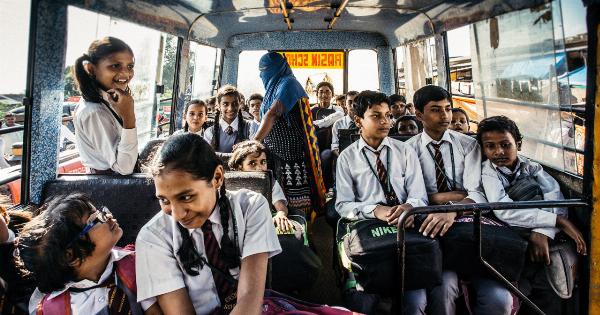Parents usually want their children to have a successful and secure future. This is the reason why most parents tend to compare their children to their peers, siblings and friends.
This comparison could sometimes lead to disappointment, stress, and pressure on the child and could have devastating results. In this article, we will discuss the consequences of comparing your child to their peers.
1. Damaged Self-Esteem
Comparing your child to their peers could be detrimental to their self-esteem and self-worth. This comparison could lead to a feeling of inferiority, incompetence, and a sense of inadequacy.
Children who are frequently compared to their peers could have low self-esteem, which could affect their social interaction, academic performance and their future success.
2. Strained Relationship with Parents
Children who are frequently compared to their peers could build resentment and anger towards their parents. This comparison instills a feeling that their parent is always judging them and that they are never good enough.
Children could begin to think that they are not accepted or loved by their parents and could feel that their parents are more interested in their peers than in them, which could lead to a strained relationship with their parents.
3. Loss of Confidence and Motivation
When children are compared to their peers, they may feel that the bar is set too high, and that they can never reach it.
This could lead to a loss of confidence and motivation, and it could affect their academic performance, social growth and personal development. A child who lacks confidence and motivation may be less likely to succeed in school or other areas of their lives.
4. Unhealthy Competition
Comparison can create an unhealthy competition between children. Children may feel that in order to be accepted and loved, they have to compete with their peers.
This competition can lead to jealousy, anger, and resentment towards peers, which could affect the child’s social development and relationships. Unhealthy competition could also lead to an obsessive focus on winning, which could affect the child’s overall development.
5. Anxiety and Depression
Comparing children to their peers can cause anxiety, stress, and depression, especially if children feel that they are not living up to their parents’ expectations or standards.
This anxiety and depression could lead to a lack of social interaction, academic performance, and overall happiness. Children who are anxious or depressed could be at risk of developing mental health problems in the long run.
6. Short-term Goals vs. Long-term Goals
Comparing children to their peers might lead to a focus on short-term goals such as grades, sports, or popularity. These short-term goals could overshadow the more important long-term goals such as character development, personal growth, and resilience.
Children who are solely focused on short-term goals may fail to develop important life skills, which could affect their future success.
7. Unfair Comparison
Every child is unique, and comparison could be unfair and unrealistic. Children have different strengths, weaknesses, and abilities. Focusing on their limitations instead of their strengths could affect their self-esteem, motivation, and confidence.
Instead of focusing on their weaknesses, it is essential to focus on their strengths and support them in achieving their goals.
8. Lack of Creativity and Imagination
Children who are frequently compared to their peers might feel restricted or limited in their creativity and imagination.
They could feel that they have to meet other people’s expectations or standards, which could restrict their creativity and imagination. Children require the freedom to explore, to make mistakes, and to learn from them. It is essential to provide children with an environment that fosters creativity and imagination.
9. Reduced Risk-Taking
Children who are compared to their peers might be less likely to take risks or try new things. They could fear failure and are afraid to disappoint their parents or peers.
This could limit their growth and their ability to take advantage of new opportunities. Encouraging children to take risks and try new things can help them build self-confidence and develop new skills.
10. Stifled Passion and Interests
Children require the freedom to discover their passions and interests. Comparing children to their peers could stifle their interests and passions and limit their growth.
It is essential to encourage children to pursue their interests and passions, to provide them with opportunities to learn and grow, and to support them in their journey.
Conclusion
Parenthood has its share of challenges and rewards. One of the challenges is to avoid comparing your child to their peers.
Parents must provide their children with a nurturing environment that fosters creativity and imagination, encourages children to pursue their passions and interests and helps them build self-confidence. By avoiding comparisons, parents can help their children develop into happy, well-adjusted, and successful individuals.




























